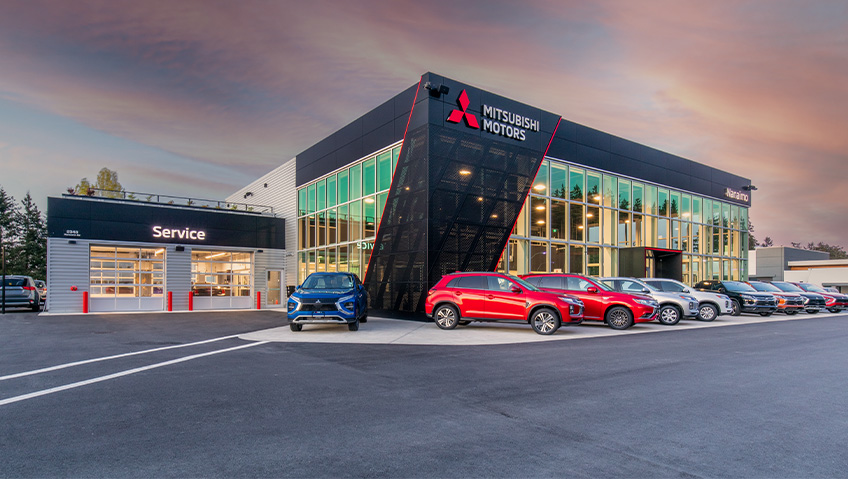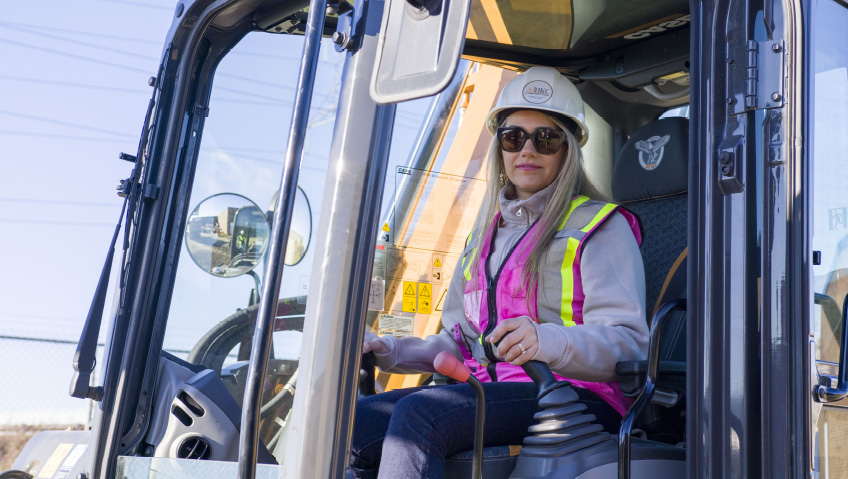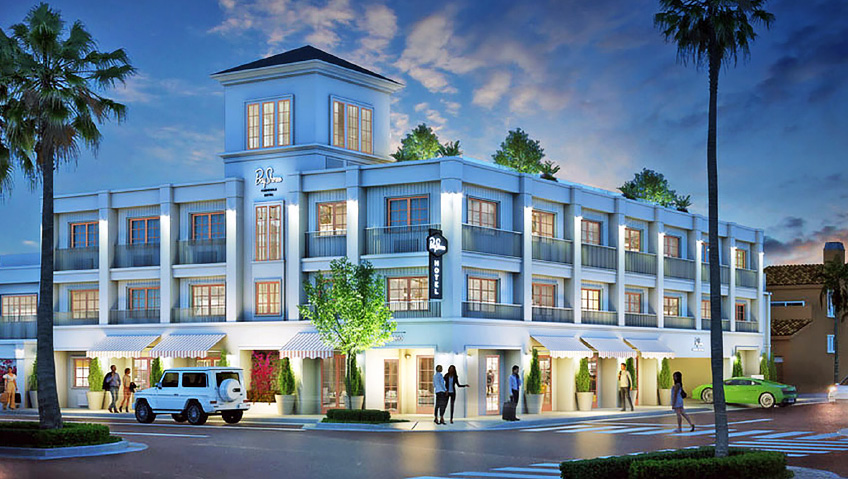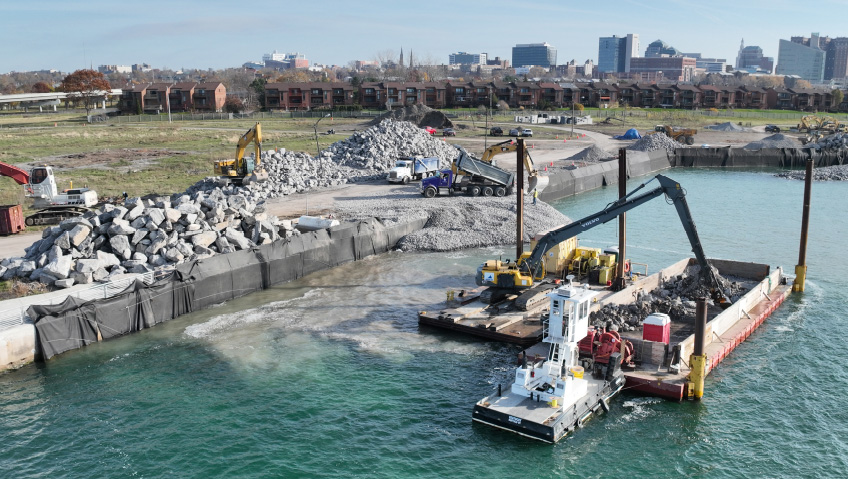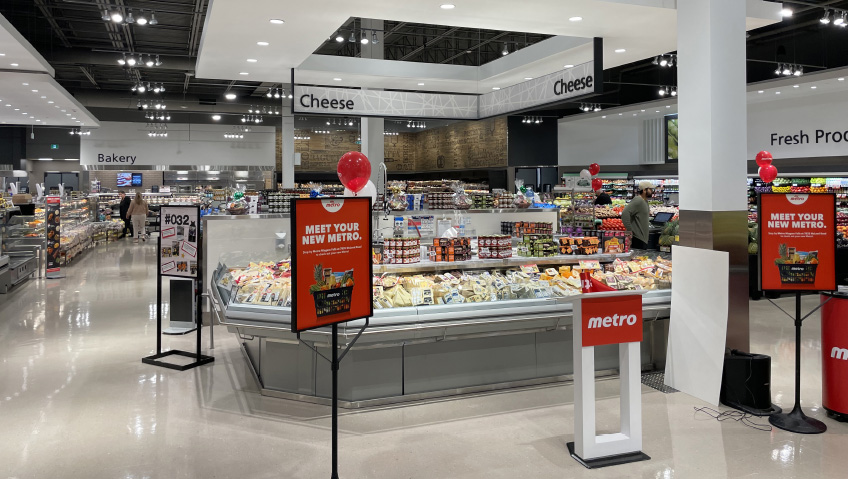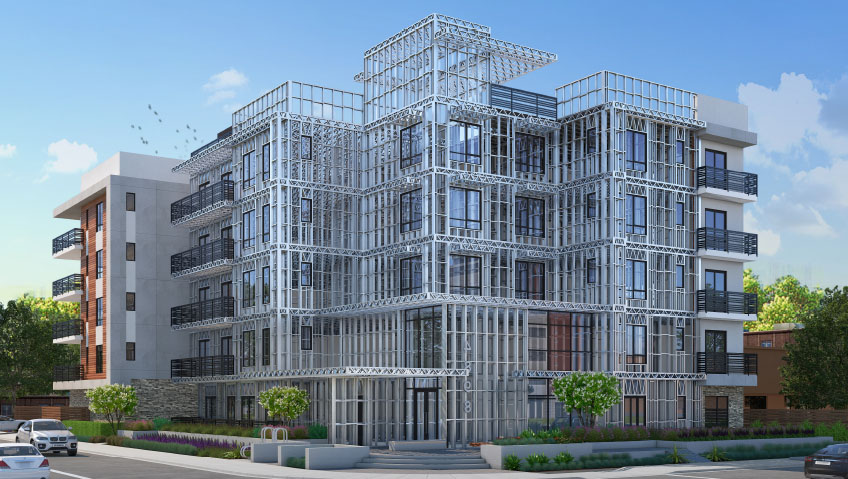Construction is an ever-changing industry, and the businesses that not only survive but also thrive have the willingness to adapt. British Columbia-based Island West Coast Developments Ltd. (IWCD) is one of those companies.
In business for decades, IWCD, as the company is popularly known, continues to live up to its motto: Building Trust Since 1986. Back in the 80s, Greg Constable was working as a framer when he started the business. Small, single-family home projects very well executed saw Constable attract the interest of developers, and the reputation he acquired for quality and timely delivery opened other avenues, such as strip malls and other commercial contracting work.
Making inroads with auto dealers on Vancouver Island also led from one job to another, and another, with a sizeable portion of IWCD’s work today involving construction of automotive dealerships.
“There is definitely a learning curve that comes along with constructing automotive dealerships. They are not as straightforward as a typical commercial build; however, over the many years of designing and building them, we have them dialed in pretty well now,” says Patrick Brandreth, Vice President and an owner of the family-operated business.
Superior services
Growing over the years, IWCD’s expertise and experience are integral to the success of its many projects, including commercial, light industrial, multi-residential, automotive construction, and seniors housing. Setting itself apart from the competition, IWCD’s wide-ranging capabilities include full-service construction management, design-build, pre-construction, civil construction, tenant improvements, and tilt-up construction.
“We are a very diversified company,” says Brandreth. “Our portfolio is fairly well-balanced between multi-residential, commercial, light industrial, and automotive which I think is important given we operate in a relatively limited marketplace, being that of Vancouver Island.”
Vancouver Island is known for its many dealerships, representing the world’s best-known automobile brands, and many of these locations are updated or even rebuilt every 10 to 15 years. The company has learned a great deal from its many car dealership projects, with IWCD’s design-build service and pre-construction division having initially developed out of that work.
“We put a lot of focus and effort into our pre-construction and design-build services. We find this particular project delivery method serves our client best and ultimately it’s what paves the way for a much smoother execution of construction,” says Brandreth.
Multi-residential growth
Over the years, IWCD has continuously adapted to meet current project needs, beginning when the cost of a single-family house on Vancouver Island was low and multi-residential developments made less sense. All that changed during the COVID-19 pandemic.
When the pandemic hit, many lower mainland residents shifted to working at home. Tiring of long commutes, people started migrating to Vancouver Island, seeking a better work-life balance. In just a few years, a building boom on the island saw multi-residential projects take off, with IWCD becoming a leader.
“Multi-residential is probably the biggest sector we’ve had to gear up for,” says Brandreth of IWCD, which was a commercial general contracting company a decade ago, building warehouses, strip malls, commercial buildings, automotive, hospitals, airports, and similar works.
Fueled by a desire to reinvent itself and compete in this market, IWCD began by hiring people with strong experience in this sector and as a result, was able to secure the work and strengthen its multi-residential portfolio, growing it substantially in the past three years.
In addition, a shortage of light industrial space on Vancouver Island in recent years has seen developers working with districts to re-zone parcels of land to the appropriate zoning to accommodate light industrial, which opened up another growth area for IWCD.
Industry leaders
About 20 years ago, IWCD became one of the first companies on Vancouver Island to get heavily involved on the front end of planning their clients’ projects, handling design, budgeting, municipal approvals, and more. “Nobody was doing that at the time 20 years ago,” says Brandreth. “No one was doing design-build.”
Having a strong pre-construction division and becoming involved early on in the project’s life cycle has many benefits for IWCD’s clients, such as cost control, early procurement of building materials, a higher level of coordination, and better solutions when it comes to constructability. Brandreth notes that in order to add real value for your client, you need to have your pre-construction division properly structured and have the right people leading the charge, which is not something that happens overnight.
“If you are not properly set up internally for the design-build process and you don’t have the right people steering the ship, you’re just not going to be successful’ it’s that simple,” he says. “Ultimately it’s your client who is going to feel the repercussions of that inexperience when it comes time to construction.”
Keeping concrete tilt construction in-house
With over 36 years in the business, IWCD has gained a wealth of experience that can be leveraged from one project to another, for the benefit of the client. One of those skill sets specifically that has really given IWCD a competitive edge is its ability to self-perform concrete tilt construction.
“We have a real niche for concrete work,” says Brandreth. “Specifically when it comes to concrete tilt, it has always been one of the specialties that we self-perform in-house.”
IWCD’s ability to cast its own panels on site and tilt them in place eliminates the need to purchase pre-cast concrete panels from third party suppliers. Therefore, the company is able to pass these savings on to its clients while at the same time having more control over the construction schedule and finished product quality.
“It was through our automotive projects where we gained so much concrete tilt experience,” says Brandreth. “Now we are benefitting from that experience because a lot of light industrial buildings are being constructed in concrete due to the price of steel.”
Award-winning
Although 2022 presented its challenges for IWCD, from supply chain issues to labour shortages and rising inflation, it also proved to be one of the company’s best years on record, and 2023 is on track for further growth.
Distinguished as one of Canada’s Best Managed Companies for the past seven years, with Platinum Club Status as one of the nation’s best, IWCD’s biggest asset is its people, says Brandreth.
A family-owned company from the start, IWCD has grown considerably over the past decade, yet the foundation of its culture remains strong. Staff are not ‘numbers’ as happens so often at with other companies.
“With all of our employees, whether junior or senior, they have to be open-minded, have a positive attitude, and a strong work ethic,” he says. “It’s equally important they fit our culture here as well; culture is big within our organization.” Being well-respected amongst the industry and offering generous remuneration packages have earned the company much appreciation and outstanding staff retention.
Working with the benefit of the company’s open-door policy, team members are free to bounce ideas off one another, and learn continually and from one another; an inquisitive attitude is always encouraged.
“Something I always tell new hires, whether senior, mid-level, or junior, is to ask questions. Nobody knows everything in this business. Don’t be too proud to ask questions. If there’s something you don’t know, ask the question, it’s as simple as that… And don’t oversell yourself. Your abilities will speak for themselves once you get the position and we will make sure you are properly compensated.”
For those considering building on Vancouver Island, IWCD is the go-to company. With its focus on pre-construction services and longstanding trade relationships, IWCD has an impressive history and successful track record over many types of projects.
“What differentiates us is our experience on the front end of these projects,” says Brandreth. “That’s where the real value is created and in my opinion that’s what differentiates a successful project from one that is not, both in the eyes of the builder and the owner.”

